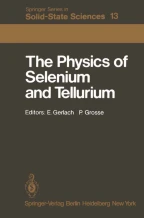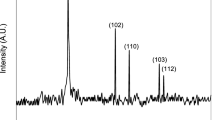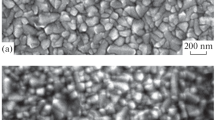The Application of Selenium and Its Alloys to Xerography

Se and its alloys with As, in particular, are the photoconductive members used in most electrophotographic machines today and are likely to maintain their dominance in this capacity for many years to come. These materials have attained their widespread use in copier/duplicating equipment through their chemical simplicity, excellent photoresponse and transport properties and stability during operation in a hostile and interactive environment (the copying machine). They operate in machines at rates varying from single copy up to 120 copies per minute and under monotone, color and x-ray exposure.
This is a preview of subscription content, log in via an institution to check access.
Access this chapter
Subscribe and save
Springer+ Basic
€32.70 /Month
- Get 10 units per month
- Download Article/Chapter or eBook
- 1 Unit = 1 Article or 1 Chapter
- Cancel anytime
Buy Now
Price includes VAT (France)
eBook EUR 85.59 Price includes VAT (France)
Softcover Book EUR 105.49 Price includes VAT (France)
Tax calculation will be finalised at checkout
Purchases are for personal use only
Preview
Similar content being viewed by others

Nickel selenide thin films: opto-electric and thermoelectric properties
Article 21 September 2022

Obtaining and Studying Films of Tungsten, Titanium and Their Oxides
Article 01 February 2022
Structure and Photoelectric Properties of PbSe Films Deposited in the Presence of Ascorbic Acid
Article 09 October 2020
References
- S.B. Berger and R.C. Enck, to be published. Google Scholar
- M.E. Scharfe, Electrophotography Second International Conf., edited by D.R. White (Society of Photographic Scientists and Engineers, Washington, D.C., 1974), p. 142. Google Scholar
- H.T. Li and P.J. Regensburger, J. Appl. Phys. 34, 1730 (1963). ArticleADSGoogle Scholar
- D.M. Pai and R.C. Enck, Phys. Rev. B11, 5163 (1975). ADSGoogle Scholar
- R.C. Enck, Phys. Rev. Lett. 31, 220 (1973). ArticleADSGoogle Scholar
- R.C. Enck and G. Pfister, in Photoconductivity and Related Phenomena, edited by J. Mort and D.M. Pai (Elsevier — North Holland, New York, 1976), p. 223. Google Scholar
- M.E. Scharfe, Phys. Rev. B12, 5025 (1970). ADSGoogle Scholar
- L.B. Schein, Phys. Rev. B10, 3451 (1974). ADSGoogle Scholar
- J.L. Hartke, Phys. Rev. 125, 1177 (1962). ArticleADSGoogle Scholar
- S.G. Bishop, U. Strom, E.J. Priebele, and P.C. Taylor, J. Non-Crystalline Solids 32, 359 (1979). ArticleADSGoogle Scholar
- S.B. Berger, R.C. Enck, and G.M.T. Foley, to be published. Google Scholar
- R.A. Street and N.F. Mott, Phys. Rev. Lett 35, 1293 (1975). ArticleADSGoogle Scholar
- N.F. Mott and R.A. Street, Phil. Mag 36, 33(1977). ArticleADSGoogle Scholar
- M. Kastner, D. Adler and H. Fritzsche, Phys. Rev. Lett. 37, 1504 (1976). ArticleADSGoogle Scholar
Author information
Authors and Affiliations
- Reprographic Technology Group, Joseph Wilson Center for Technology, Xerox Corporation, Webster, NY, 14580, USA S. B. Berger, R. C. Enck, M. E. Scharfe & B. E. Springett
- S. B. Berger



